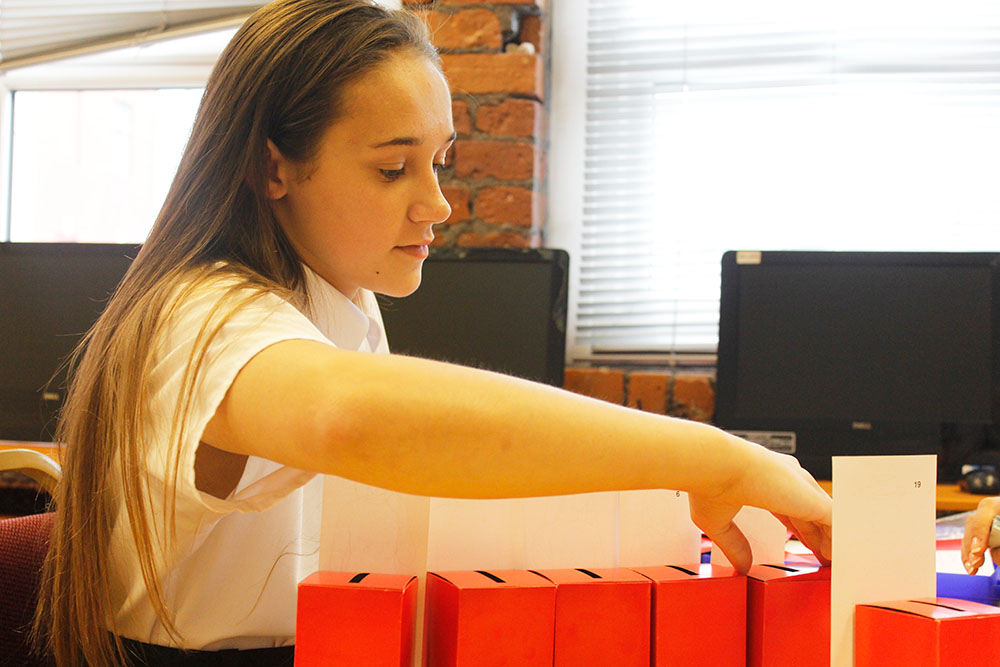

Children and young people (up to age 25) would be suitable for a SEMH assessment if they:
The above list is not exhaustive, and if you notice any changes in behaviour or attitude which cause concern then please don’t hesitate to contact us and find out if a SEMH assessment could be useful.

A girl doing a Bene-Anthony family relations assessment with one of our educational and child psychologists
We help children and young people with mental health difficulties.

We help children and young people who are self-harming

The benefits of having a SEMH assessment come from identifying and addressing SEMH needs a child or young person has. Benefits include:
Identifying SEMH needs early can reduce the impact of needs through early intervention and putting specialist strategies in place.
A SEMH assessment can be carried out following an initial discussion, please see our process below.
SEMH assessments can be carried out through observations, conversations, questionnaires, activities and puzzles. On some occasions a SEMH assessment may take place through play depending on the age and language level of the child or young person.
The specific assessment used will be chosen based on the individual and their situation. Common SEMH assessments we use are:
There are many ways and assessments which help to identify social, emotional and mental health needs and these will be discussed during the initial discussion.
Following a SEMH assessment, needs will be identified and recommendations can be put in place at home and in the education setting. It may be suggested that a targeted intervention or the use of support strategies will help individuals to become happy, safe and ready for life’s challenges through maximising their potential. We provide follow up services, including a feedback meeting, to help children, young people, parents, carers and education staff to understand any findings.
Reports are available following a SEMH assessment. We provide a variety of reports of differing lengths to help us to provide a truly cost effective service. Reports can include a summary or detailed information about any findings and recommendations. Learn more about our reports.
A SEMH assessment identifies underlying needs which may be causing challenging behaviour or low mood. When needs are identified they can be addressed.
Arrange an initial discussion to find out how we can benefit your education setting. The initial discussion lasts 2 hours and is a starting point to identify needs. The cost is £260.
only
£260


Once again thank you for all your help and for actually listening to me when others wouldn’t.

Jodie (Parent)
Thank you Julie once again for the excellent report, it captured the child’s needs entirely - SENDIASS, parents and me commented on how well written it was. Many thanks for your continued assistance.

SENCO
Sarah Ward was brilliant with us. Really happy with the help and support, would recommend.

Joanne (Parent)
I think the work you have been doing has been great to help break the stigma of mental health and as a fellow sufferer I know how important that is.

Mental health professional
Many thanks for Sarah W’s hard work with our students which has been very well received.

Deputy Head
Really enjoyed it and learnt lots that I can take back to school. Thank you for the quality experience.

Sarah Tindal
Thank you Julie once again for the excellent report, it captured the child’s needs entirely - SENDIASS, parents and me commented on how well written it was. Many thanks for your continued assistance.

SENCO

We provide bespoke solutions to suit all budgets and requirements for children and young people aged 0-25 in homes, education settings and the community. Our clinical, educational and child psychology services are cost effective.
To make a referral and arrange an initial discussion please complete our referral form.

Ready to get started? The next step is to speak to our team to find out more about the services we provide and how we can help. Call us on 0161 820 9229 or email office@hsrpsychology.co.uk